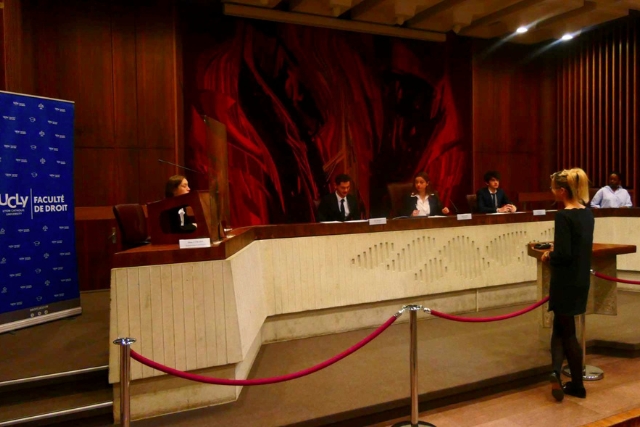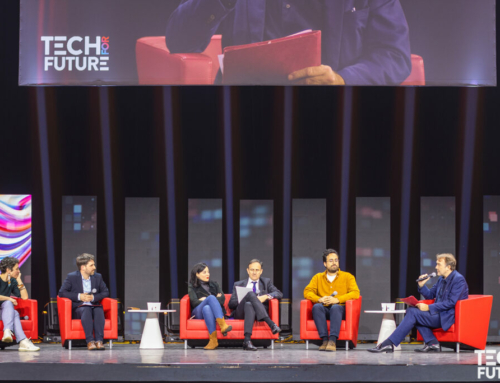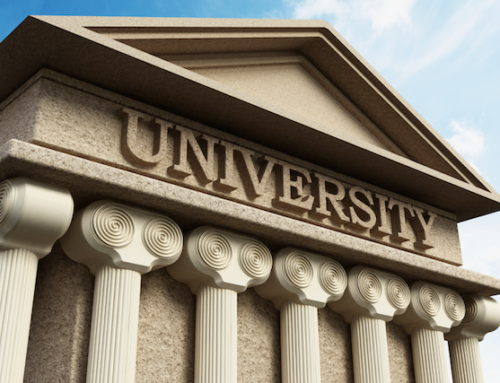“What we must learn to do, we learn by doing”. This statement by the Greek philosopher and scholar has always had a strong resonance in manual trades, as certain popular sayings attest. But is the same true when it comes to acquiring academic knowledge? How have higher education establishments, where the word of the teacher still prevails, gradually adopted simulation as a method of acquiring knowledge ?
Since the emergence of digital technologies, the means of accessing and transmitting knowledge have greatly evolved. Today, a computer can simulate any environment, from a nuclear power plant to the human body, from city traffic to company premises. Everything can be simulated with a precision of realism that is becoming fascinating with the contribution of artificial intelligence. So why deprive ourselves of this ability to touch reality at first hand, even when it’s virtual?
In medicine, the principle of “never the first time on the patient” takes on its full meaning today. While for centuries, students have practiced on “cadavers” or more or less realistic mannequins, simulation is now total with, in particular, the “digital twin”. A heart or an entire body can be digitized and used as a “training ground” for future practitioners. All reactions and situations are simulated, and the learner is confronted with something close to the real thing.
This was already the case in other professions, such as aviation, where airline pilots are trained on simulators before taking the controls of a plane. In fact, technology has also made it possible for a great many enthusiasts to pilot a fighter plane, an ocean-racing sailboat, a tank, a submarine or even a tractor in their own field. Other video games have turned us into city managers, empire builders, film directors and soccer coaches. Simulation is a way for humans to experience what others experience at little (or almost no) cost.
But what are the main benefits of simulation as part of a university training program ?
As the Université Paris Cité reminds us, “as part of initial training, simulation enables students to gain experience through the reproduction of gestures and simulated situations”. For all faculties of medicine, the primary objective is to minimize the risk to the patient, having first trained the practitioner in the critical situation encountered. The infinite possibilities of simulation can then cover virtually all risks. Simulation thus becomes an indispensable complement to theoretical training. Today, platforms such as Ilumens make rooms with connected mannequins and simulation equipment available to teachers and learners via Internet access.
For example, we can simulate all kinds of interventions in an “adult” room equipped with :
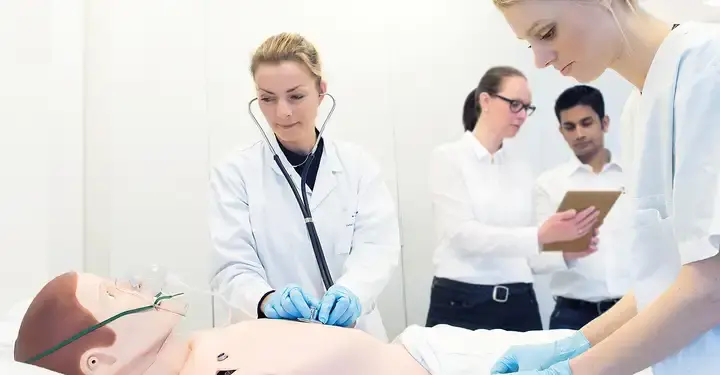
All those involved in training agree that the skills to be acquired require training and practice. However, one of the major benefits of simulation lies in the quality of the debriefing. The teacher must be able to get learners to express their feelings, their difficulties or their satisfactions, in order to provide both answers and encouragement. After all, knowledge acquired through practice is remembered through positive feelings, through the feeling of having done things right.
The other essential benefit of simulation lies in the learner’s greater autonomy. Digital platforms and distance learning courses already give them access to knowledge at any time and without geographical constraints. Simulation enables them to go even further, by testing and experimenting with all kinds of situations. For almost twenty years, the University of Colorado Boulder has been offering simulations in science and mathematics, accessible to all learners (whether enrolled in programs offered by the university or not). Spurred on by the 2001 Nobel Prize in Physics, Carl Wieman, the PhET Interactive Simulations project was created in 2022. Phet Sims [1] are based on in-depth training, research and involving students, through an intuitive game-like environment. They can play with Fournier series, stimulate a neuron or explore the solar system from their personal computer. For each of the 164 interactive simulations, teachers will find indications of pedagogical objectives to be validated during the learning process. Over 3,000 lessons have been suggested by teachers based on Sims Phet. In total, more than a billion simulations have been delivered.
But simulation isn’t just for science or learning a manual trade.
It is also deployed for courses where theory is the basis of learning, such as law. For example, the Catholic University of Lyon offers its students the opportunity to take part in mock trials[2] as part of the Tech Law Clinics, an Erasmus+-funded project in partnership with the Lyon Administrative Court of Appeal. In addition to questions relating to the impact of technology on the law, these mock trials have been proposed on a variety of themes: “as part of UCLy’s DU Droit du Climat et du Développement Durable, students can take part in a mock trial on a legal case linked to environmental issues. For the 2022 edition, the case involved a conflict between a town council and a food truck whose activity in a protected natural area led to a dispute.” Thus immersed in the reality of a courtroom, the students were able to appreciate the difficult balance to be struck between freedom of trade, individual freedom and environmental protection.
While simulation is an important asset for acquiring and applying knowledge, it also has other virtues. Research published in “Using Simulations to Promote Learning in Higher Education” by John Paul Hertel and Barbara Millis in 2002, on the benefits of simulation for learners, naturally evaluated the benefits in terms of the acquisition of individual knowledge and skills. But they also highlighted a key aspect of learning: the sharing of experience. The gain is also collective.
The collective sharing of experience is a catalyst for knowledge and know-how. Each person expresses his or her experience to the group or class, giving the others a different, complementary perspective. What’s more, a real collective knowledge is built up, ensuring a high degree of equity in the acquisition of knowledge. In this way, simulation is a real social bond-builder. As everyone’s reactions are different by nature, becoming aware of them and seeing things through other people’s eyes is a major opportunity to enrich one’s knowledge.
Those who experience this in their day-to-day work are all learners in the economic and political spheres. Here again, simulation and role-playing are tried-and-tested teaching techniques that deliver excellent results. Learning to negotiate, instantly taking account of new rules of the game, finding a positive way out of a complex, multi-party discussion, can all be learned through simulation.
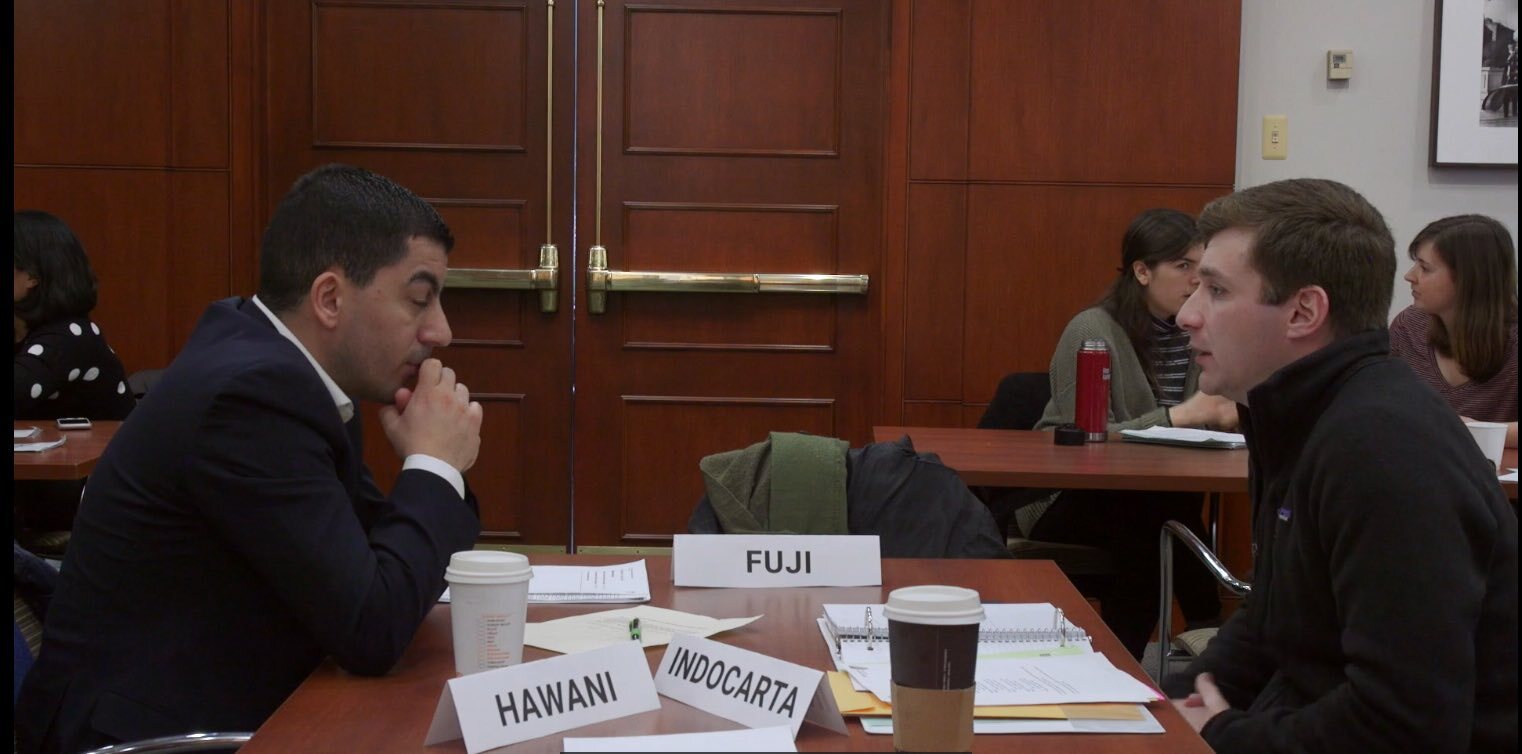
This is the case in business schools the world over, and it’s also what Harvard Graduate School of Education offers its students. In a very explicit video[3], Brian Mandell and his teaching team explain how they design classroom simulation experiences that reflect the real world and turn up the heat for students. This global negotiation simulation, in particular, features competing interests, culture clashes and periodic news bulletins that alter the very ground on which the students’ fragile negotiations are built.
The pedagogical virtues of simulation are recognized in all disciplines. Digital technology has also accelerated the use of these learning techniques, and higher education establishments have naturally equipped themselves to enhance the experience for all.
This undeniably contributes to fulfilling the mission assigned to universities, which is to make the training they provide more operational and closer to the needs of industry. Simulation and digital technologies enable them to go even further in this quest for performance. All professions are and will be impacted by advances in technology. Simulation should be seen as a means of learning how to master a constantly changing environment and cope with situations that are still unforeseen.
Simulation is learning how to make tomorrow !

